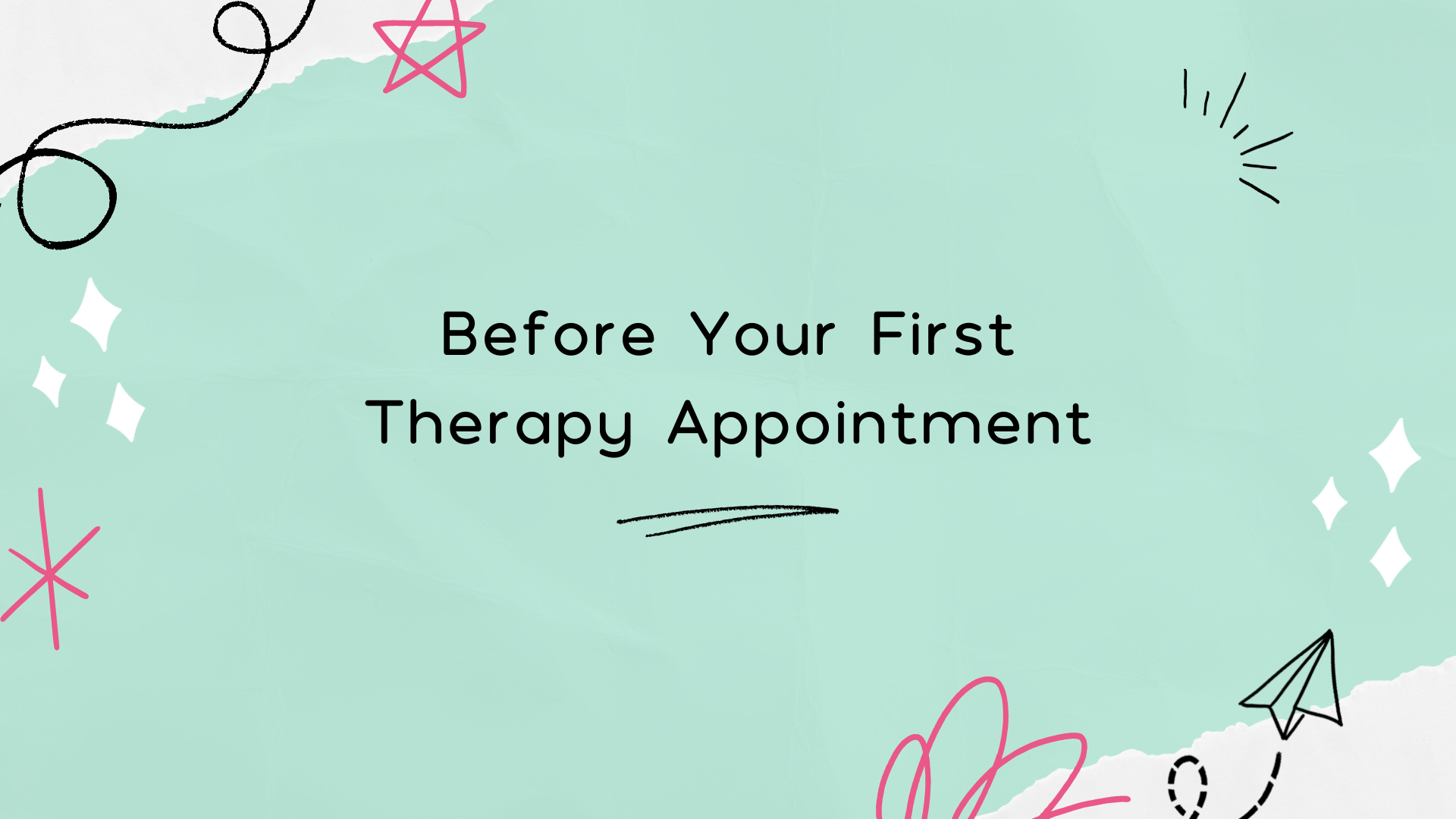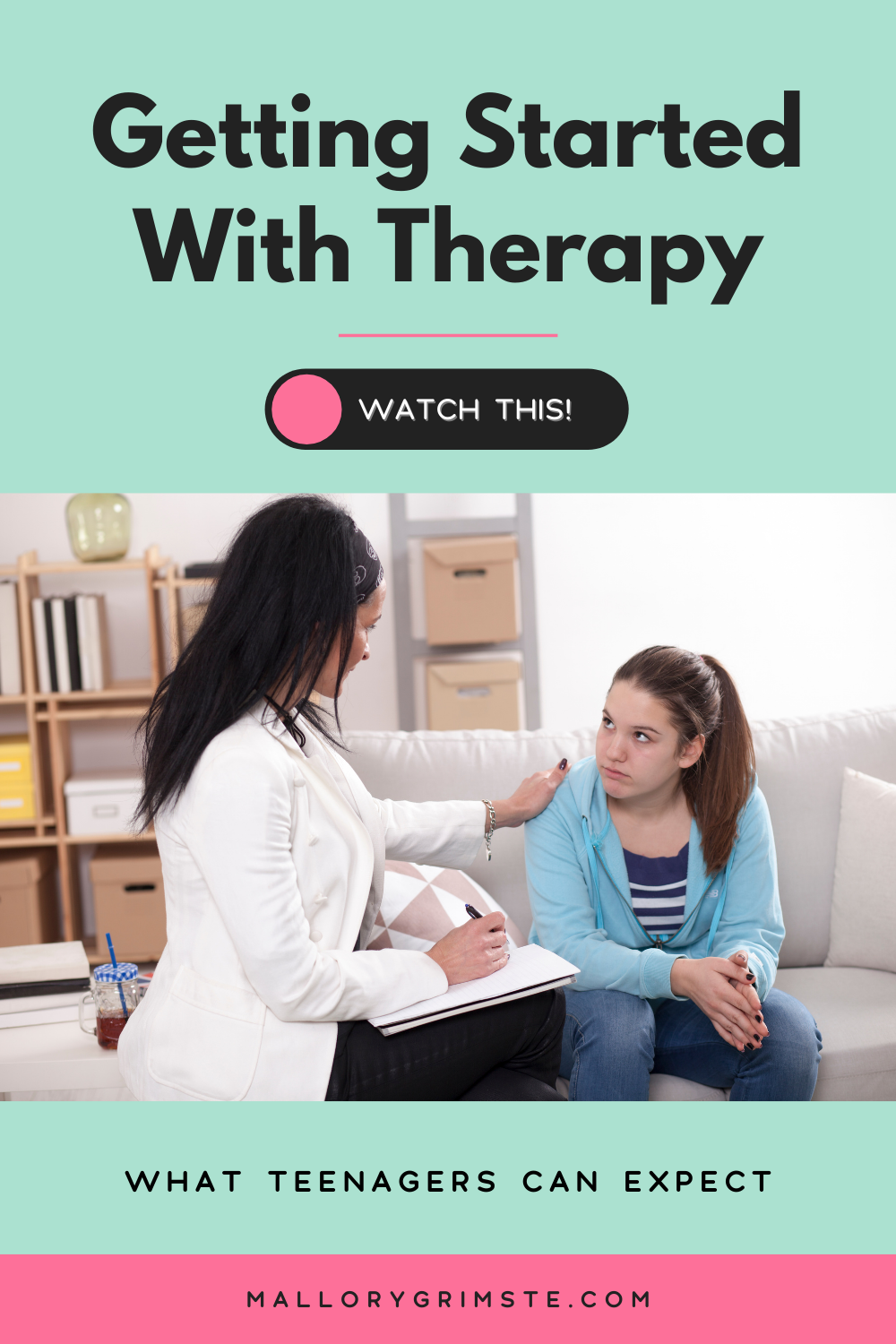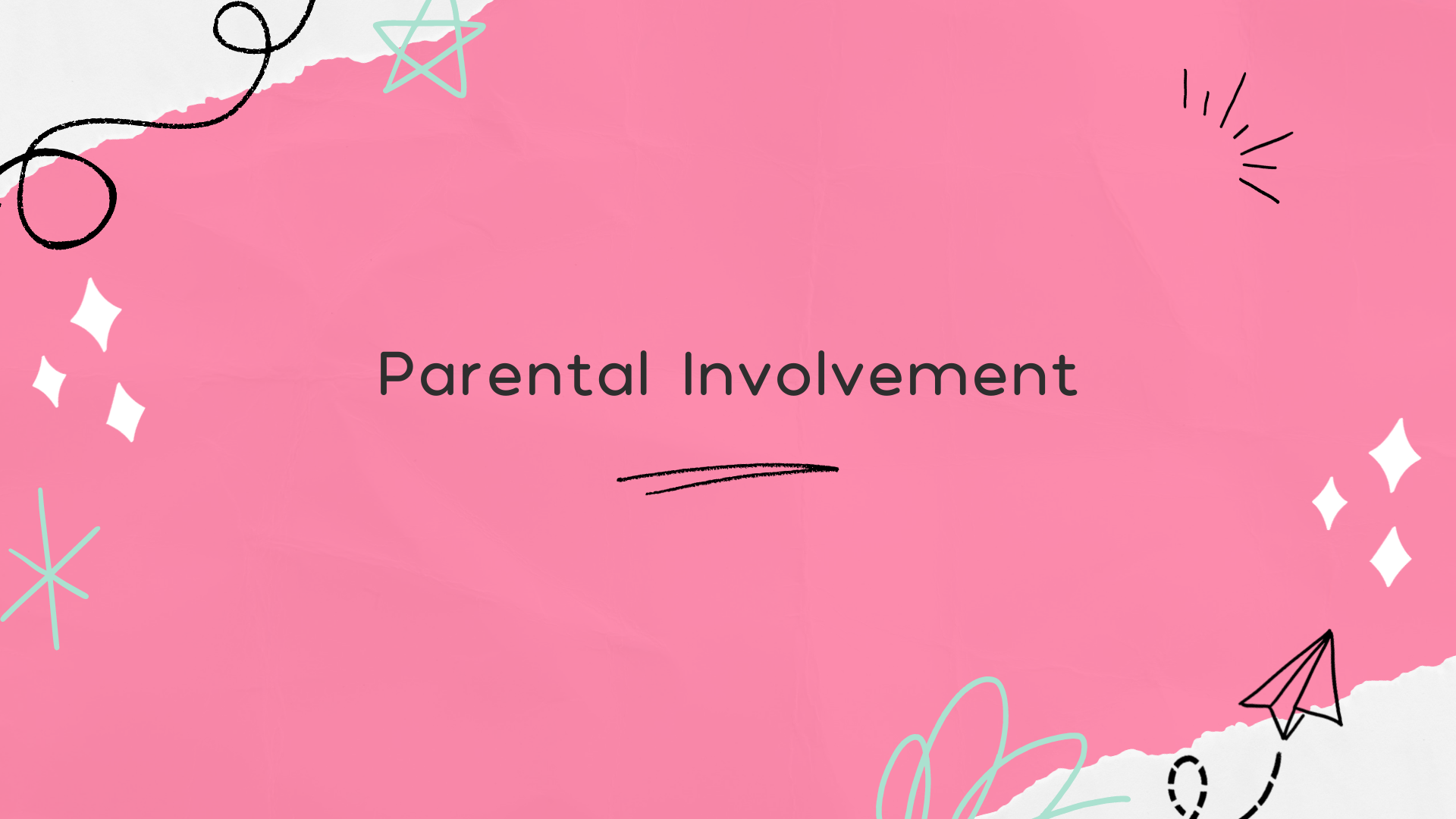Congratulations! You did it.
You are on your way to starting therapy! 🎉
Now that can feel a little bit scary when you're first starting out, especially if you haven't had a good therapy experience in the past, you're feeling a little embarrassed about having to return to therapy, or you might be somebody who has never gone to therapy before.
Actual therapy sessions are quite different than what they show in movies and television shows. The misrepresentation of what therapy is like, especially for teenagers is why I created the YouTube channel.
As an actual mental health therapist, I help teens start and complete therapy every day. It's one of my favorite things. So I figured, why not tell you what to expect when you’re starting therapy as a teenager?
If you prefer to watch the video, click this image here:
🔔Subscribe here for MORE videos that help teens struggling with mental health: mallorygrimste.com/youtube
Before Your First Therapy Appointment
You need to have a conversation with your parents about the fact that you want to start therapy.
If you're not sure how to start that conversation, I have several videos on the topics that you can check out in this playlist on YouTube here: How to Talk To Your Parents About Your Mental Health Struggles + Get Help!
Here are some basic things that you wanna think about as you prepare to ask your parents for therapy:
→ What is it that you are hoping to get from therapy?
→ What have you already tried?
→ How are you being negatively impacted now? So how is your sleep, your appetite, your school grades, your relationships?
Thinking about these things may help your parents understand a little bit more about why you would be wanting the help of a mental health therapist for whatever concern you're struggling with. It will also help make sure that they link you up with a therapist who actually specializes in the area that you're hoping to get help with.
LIKE THIS VIDEO POST? I’D LOVE FOR YOU TO FOLLOW ME ON PINTEREST AND PIN IT FOR LATER!
Your First Therapy Session
Therapy is not one size fits all, which is where that first appointment comes in.
We call this first therapy session a Client Assessment. It’s is where the therapist is getting to know you, your feedback, your experience, and your hopes and desires for what you are hoping to get out of therapy. They are not only assessing what your symptoms are and how severe the problem is, they're also trying to assess if they're a good fit for your needs.
During that very first appointment, your therapist is going to ask you a ton of personal questions. You have the right to decline to answer anything that you are not comfortable answering, though they may stay curious and ask a little bit more about why your choosing not to answer.
I would be wary about being too guarded in that first appointment because that therapist isn't going to get a good assessment of your needs, but ultimately, it's your life, your therapy. You get what you put in. It's really up to you about how much you wanna disclose in that very first therapy appointment.
During that Client Assessment, your therapist will ask you things about your:
→ family
→ school or job if you have one
→ relationships with friends or romantic
→ interests and what you do for fun.
You’ll also be asked some safety questions, like, have you ever thought about dying? What have you done when you've considered these thoughts? Have you ever hurt yourself or anyone else?
Your therapist will also assess for any risk of neglect or abuse. It should be noted that many therapists are ethically and legally obligated to report any suspicions or evidence of abuse and neglect to the appropriate people. Now, when you are in that under age category, sometimes not always, it might mean cluing in your parents or your legal guardian. Now that varies situation to situation and case by case, and also state by state. So if you're not sure you can look up the laws in your area.
The Client Assessment is also your first opportunity to interview the therapist directly and see if they're a good fit for you.
Just because somebody might have the right skill set or expertise if you guys are not vibing or there's just not that mutual respect or trust that your desire, it might be a good thing to stay curious and hang in there for a few sessions. Though if you know it's not a good fit, there's no need to force it.
There are lots of therapy opportunities out there. I am not the only therapist in town, thank goodness, because there are only so many hours in the day and if you've ever tried to schedule anything, you know it can be a little bit like scheduling Tetris.
Finding a therapist you vibe with is a little bit like dating. Just because you're on a first date with somebody, doesn't automatically mean that you must now spend your entire life and marry them. That'd be a little weird, unless you're doing like married at first sight or a matchmaking sort of a situation. That's a totally different thing because you're going in there with that expectation.
But when it comes to linking up with a therapist, we are not expecting you to need therapy forever. We really want you to get better and have an opportunity to move on from therapy.
Not only does that help you feel good, it helps us feel good too, which is where the treatment plan comes in.
Your Treatment Plan
After you've had that first appointment, you're gonna develop your treatment plan with your new therapist.
Your Treatment Plan is what actually guides your therapy and treatment. It lets us know:
→ Are we on track?
→ Has life happened and there's a new curveball that we need to consider?
→ Is this working, is it not?
→ Are you getting better?
→ Are things getting worse?
→ What might be contributing to that?
It's really meant to be used as a guide or a tool to check-in that you are on the same page as your therapist, and if you're under 18, are your parents on the same page too? Especially if they're going to be bringing you to your therapy appointments and paying for your therapy. They're gonna wanna know that they're getting a good return on their investment.
The treatment plan is a really great way to show and have that conversation. We know that having goals actually specified and written down where we can reference back later has been proven over and over again to be helpful in achieving those goals or maintaining progress on those goals, which is another reason why we have that treatment plan to help guide our therapy progress.
WANT TO REMEMBER THESE TIPS? DON’T FORGET TO PIN IT!
Now, just because something is on the treatment plan or not on the treatment plan does not mean that you can or cannot discuss it in therapy.
We totally understand and get that life happens.
Unless you are in an actual therapy model study where you have to be really strict with the protocol, many of us are flexible when it comes to life happening.
For example, let’s imagine you come in for your session and you got a bad grade on a test and it's really upsetting you. But we had on the treatment plan that we were going to talk about your relationship with your mother. Very few therapists are gonna go, "oh, you know, that really sucks about your test, but we gotta talk about Mom."
UNLESS you are somebody who comes in every week with what we call a crisis of the week.
Sometimes that's a signal that there's just a lot of chaos happening around you and the circumstances, and we might need to kind of pivot and figure out how can we clear out and manage some of that so we can get to some of that deeper level stuff that's gonna have the bigger impact. It might also be a signal that coming in with a different crisis or chaos is actually keeping you from avoiding the real reason that you're coming in for help with therapy.
And, of course, the treatment plan is also an opportunity for you to check in and assess, is my therapist giving me what I need? It's really important to communicate with your therapist. We are not mind readers, we definitely are experts in human behavior and thinking, and emotional problems and solutions for those.
In fact, therapy is one of those weird places where you can actually talk to your therapist about how hard it is to talk to your therapist about certain topics. I know, it's totally weird. It's a little meta It's actually really cool though. And we want to know, we want these discussions.
If you are having problems with that, definitely make sure that you subscribe to the YouTube channel because next week's video is gonna be how to have that conversation with your therapist when therapy isn't helping.
Parental Involvement
I happen to be a mental health therapist that specializes in working with teenagers and young adults so I know how important it is to have parental involvement for the optimal outcome.
That's because when you are a teenager, you're still learning and growing, and your home environment is definitely impacted by your family and vice versa. It's really important to have them involved, or at least on the same page about what's going on in your life in a useful and helpful, healthy way.
Now I am NOT a family therapist. Very rarely will I actually have parents come in for a therapy session. I think it gets a little bit messy, especially because the therapy style that I do is with the teenager.
I very much am of the mindset that if I can teach the teenager how to have these conversations with their parents and loved ones, then that'll have a nice little trickle effect rather than using me as a communicator or interpreter. That gets awful because heaven forbid, I miscommunicate or misinterpret something. It's not really helping the teenager communicate or the parent communicate with their teenager.
A few ways that I like to include parents in the therapy process is by periodically, usually on a quarterly basis, sending them a request for their observations at home about any progress or struggles that they're seeing with their teenager.
Not only does this help facilitate the conversation around checking in and increasing mindfulness and awareness, but it also goes back to that treatment plan that we talked about and see, okay, is this working? Is this not working? Why or why not? What could we be doing differently? And maybe it's time to complete and move on from therapy, which is also a really cool discussion to have.
I also happen to offer phone call sessions for 15 minutes spot checks or questions if parents need to get in contact with me outside of that therapy appointment.
Now it is so important that you know how to communicate with your parents and your therapist about a variety of difficult topics that usually lead to talking to a therapist. If you're struggling with knowing how to talk to your parents about the things that come up in therapy, I have some great videos that you can check out right over here: How to Talk To Your Parents About Your Mental Health Struggles + Get Help!
IF YOU ARE CONCERNED THAT YOU, OR SOMEONE YOU KNOW, MAY BE CONSIDERING KILLING THEMSELVES, PLEASE CONNECT THEM WITH HELP.
SUICIDE PREVENTION LIFELINE
1-800-273-8255
✨ Call 24/7 ✨









